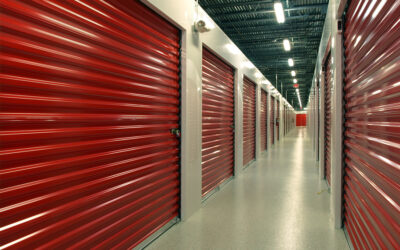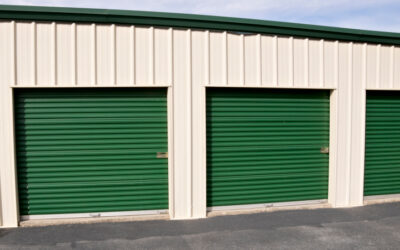Self-storage facilities may look like typical brick-and-mortar business operations from the outside — but, when it comes to insurance coverage, they’re not. The truth is, with their distinct property exposures, self-storage facilities require a different approach to insurance coverage, one that accounts for their specific vulnerabilities.
Drawing from an insightful conversation with Josh Leykam, Vice President of Underwriting at MiniCo, this blog highlights unique exposures and aspects of property insurance under MiniCo’s Commercial Self-Storage Insurance program and how to mitigate them.
Hidden Dangers: 3 Unique Self-Storage Risks
Self-storage operations cater to a wide range of personal and business storage needs, which in turn introduce specific risks not typically encountered in other retail businesses. Here are three unique risks self-storage facilities face:
- Security Issues: Many commercial properties restrict access to employees or prohibit entry after hours, but self-storage facilities typically have much broader access hours. In many cases, that means tenants can access a self-storage facility at any time, day or night. According to Leykam, this level of premise access significantly increases the risks of vandalism and burglary. Additionally, because most self-storage facilities also operate retail centers (to sell boxes, packing supplies, and other items), it’s not just the storage units that can face trespasser-inflicted damages. Last year, U.S. retail stores reported a 41% increase in shoplifting, making the self-storage industry’s 24-hour business model a risky one. Mitigating these risks involves intentional security measures that go beyond basic security cameras. Leykam adds, “In a self-storage environment, the significance of security measures — ranging from 24-hour surveillance to daily property inspections — cannot be overstated. They serve as the frontline of defense.”
- Unauthorized or Hazardous Material Storage: In an ideal world, self-storage tenants would not store unauthorized items such as dangerous chemicals or vehicles in their storage units. Self-storage lease agreements clearly define the items that are prohibited from being stored on the facility premises. However, it can happen — and it can’t be ignored. According to Leykam, “Lease violations can have a significant impact on properties. Tenants are not supposed to store gas, flammable, or combustible items in their units. Even a car or a golf cart can create a greater risk environment than one might expect.” If unauthorized materials are discovered, facility operators must remove them, no matter the cost. One such incident took place in the San Francisco Bay Area, where a self-storage operator faced expenses surpassing $250,000. This hefty sum underscores the importance for insurance agents to seek out specialized solutions for their self-storage clients including coverage to address potential losses associated with these types of incidents. In addition to the right policy, Leykam advises operators to rely on carefully drafted rental agreements (vetted by an attorney) and appropriate security measures to deter tenants from storing hazardous materials. While this might not stop every unauthorized storage attempt, it can help mitigate the risk of losses, reduce claims, and help secure more favorable terms – premium, limits, and deductibles – during the underwriting process.
- Structural Vulnerabilities: Self-storage facilities have many structural features that expose them to property damage such as roll-up doors, paved driveways and loading areas, and electronic access systems. Leykam states that one of the most notable structural vulnerabilities is metal roofing. “From a property-specific standpoint, metal roofs are very common in self-storage, and they are both a blessing and a curse. On one hand, they are durable so they do a great job protecting against rain, snow, and hail. However, depending on the area, you could see some significant damage from hail. Plus, they’re very expensive to replace.” Leykam, expounding on how carriers are responding to this, adds, “The industry has responded to this vulnerability by introducing what’s known as a cosmetic loss limit. It acknowledges that these roofs can sustain damage, but as long as they’re functioning, they may not need to be replaced.” Leykam notes that this approach avoids unnecessary replacement costs while still protecting the property’s value, keeping rates lower for the insured.
Tailor-Made Insurance Solutions with MiniCo
When it comes to securing specialized insurance solutions for self-storage risks, partner with MiniCo’s industry-leading program team. Leykam weighs in on the MiniCo difference: “With a 50-year legacy of specialization insuring self-storage operations, our program is tried and tested. Make that battle-tested.” MiniCo’s exclusive Commercial Self-Storage program features a specialty BOP along with monoline solutions designed to address the unique needs of self-storage businesses. Contact our experienced program underwriters or get a quote online.




